5 Movies That Communicated The Opposite Of What They Intended
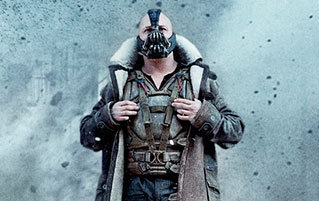
It's not uncommon for movies and television to slip teachable moments into our entertainment. The Godzilla movies taught us all about the dangers of nuclear weapons and testing. Avatar taught us not to trust Australians. But what happens when these messages fail and end up communicating the exact opposite of what the creators intended? For example ...
The Dark Knight Rises: Anarchy Is Not That Bad

The Message:
Like Christopher Nolan's previous Batman movies, The Dark Knight Rises is awash with political commentary. A terrorist leader, Bane, seizes power in Gotham and starts giving speeches that read like a Wikipedia article about Marxism: The people of Gotham should rise up, throw off their chains made of rich people, and take over. The city's authorities are lured underground and trapped, and Batman is forced to watch from his distant prison as anti-capitalist anarchy destroys the city. The message here doesn't have to be spelled out in Mitt Romney bumper stickers: This is what happens when the 99 percent seize power, and it stinks more than the Porta-Potties in the second month of an Occupy Wall Street camp.
Why It Falls Flat:
Because Bane's anarchy-plagued Gotham works better than a lot of American cities.
Oh sure, we get a little montage of wealthy people getting dragged out into the street, and yes, there are some unfair trials going on. But for the average Joe Gothamite on the street? Life seems to be going pretty well. For example, look at these shots we see of Gotham's streets, months after it was taken over by Bane and his band of revolutionary thugs:
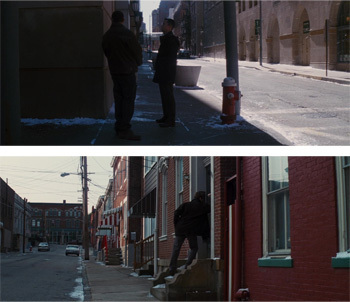
Now let's compare those to what a normal city street looks like after 11 days of a garbage strike:

Clearly, someone is collecting Gotham's trash, so we can only assume that there was a deleted scene in which Bane took a break from fist-based murder and held a meeting that detailed an orderly garbage-collecting roster using PowerPoint slides:
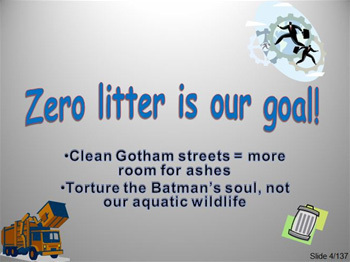
"When the polyethylene terephthalate bottles have been separated from the miscellaneous polystyrene,
then you have my permission to recycle."
The streets are also apparently getting plowed, which is more than Gotham's real-life counterpart can manage when it's not being occupied by evil mercenaries. Sewerage and water are presumably still running, judging by how clean everyone looks and how much typhoid they don't have. The cops trapped underground are being fed, which means that the occupation has a functioning welfare system that extends even to its political enemies. Electricity is common enough for people to talk about watching TV. And all this without anyone paying any taxes. Nolan's depiction of a socialist nightmare actually looks pretty sweet. Maybe Venezuela can learn from the masked sociopath, and prevent all those toilet paper shortages it keeps having.
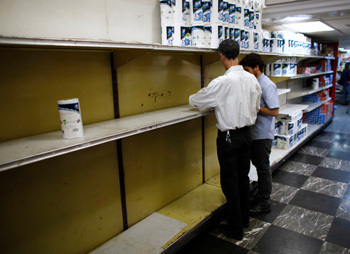
Yes, Bane did have a bomb that was going to blow up the city. But that just means that Nolan's message ended up being "violent socialist revolutions are alright, provided that no one stumbles on any experimental nuclear weapons."
Breaking Bad: Walt's Evil HMO Was Right

The Message:
For those who have been sequestered with a jury since 2008, here's the basic plot of Breaking Bad: Walter White is a middle-aged chemistry teacher and a general life-failure victim who gets diagnosed with late-stage lung cancer. He decides to cook meth in order to support his family and pay for super-expensive cancer treatment that's not covered by his HMO. This second part has been widely interpreted as a political message, judging by all the "Canadian Breaking Bad" jokes floating around the Internet:

These comics and articles miss the fact that Walt first decided to cook before he found out about the badass cancer-fighting doctor, but they do seem to have a point: If Walt's HMO had just agreed to pay up, Walt could have closed down his meth kitchen after his first batch, and all the bad shit that happened after that could have been avoided. In this version of the show, Walt and Jesse spend the next four seasons driving around the country in their RV, solving crime and giving chemistry lessons to underprivileged students. Hector Salamanca releases a Christmas album. Hank gets a full-body purple tattoo and solves his and Marie's marriage problems. Gale marries Ron Paul. Everyone could have been happy. Thanks a lot, America.

In this alternate reality, the plane crash was caused by an air-traffic controller who stayed up late watching Bar Rescue.
Why It Falls Flat:
In the first episode, Walt is told by his HMO-approved doctor that his "inoperable" cancer gives him "a couple of years" to live. Walt rejects this downer diagnosis and chooses an out-of-network cancer-killing regimen that he pays for with his meth wages. Now, how long would Walt have lived if he'd survived long enough to die of cancer, rather than from the dragon that swooped down and killed him in the final scene (man, that was one unexpected twist ending)? Judging by his awful health in the last episodes, the answer is: about two years. In other words, Walt's out-of-network treatment with the "oncology dream team" doesn't actually achieve anything, except maybe provide an excuse to wear an awesome hat.

Many fictional characters gave their lives to allow this sexy Halloween costume to live.
Don't get me wrong, insurance companies can be dicks about denying optimal treatment, but in this case Walt's HMO did nothing wrong. If there is no advantage for a patient going out-of-network, then an insurance company has no obligation to pay for it, any more than it is obligated to cover experimental treatment based on visualizing unicorns. So, rather than a grim commentary on the American health-care system, we should see Breaking Bad for what it is: a really good advertisement for term life insurance.
True Blood: Gay People Are Murderers

The Message:
True Blood has never tried very hard to hide its "vampires as metaphors for LGBT people" message. Its vampires (who "come out of the coffin" at the beginning of the series after Japanese scientists invent a synthetic blood substitute) are gayer than the opponents of a 13-year-old gamer who's losing at Call of Duty. The opening credits even display a church sign reading " God hates fangs," which is about as subtle as being stabbed by a rainbow. Accordingly, the vampire-haters on the show, such as the members of the anti-vampire " Fellowship of the Sun" church, are portrayed as religious bigots who want to murder the vampire race, just because they're all infected with a neuron-eating hate-virus.

Above: Not a portrayal of well-rounded individuals.
Why It Falls Flat:
Because, as has been pointed out before, the vampire-haters are actually kind of right.
The show's vampires reveal their existence to humans because the new blood substitute allows them to live without drinking human juice. This is very nice of them, but it means if you're a vampire who was alive before the fake blood came out, you've spent years hunting down and eating people like they were sentient hamburgers. Doesn't "hundreds of years of murder" deserve some sort of punishment? Now consider this: Modern society's default form of punishment -- sending people to jail -- hinges on the fact that you're taking away a chunk of their limited lifespan. But since vampires are immortal, they can go back to their youthful sexy-times as soon as their time in vampire jail is over. Jail just doesn't work for vampires, any more than garlic-and-holy-water-based torture would work on humans. So it's reasonable to figure that if a vampire has killed a human, the death penalty is the only really just punishment.

I fucking told you so, bitches.
OK, so maybe killing off all those sexy vampires still sounds extreme. But even so, it makes sense to approach vampires with a Vatican-sized portion of wariness (and maybe a shotgun full of silver and rock salt; come on people, they're vampires). These creatures have a centuries-old cultural tradition of viewing humans as walking groceries. They can roofie people with their minds. Consuming their bodily fluids turns characters into sex-crazed lunatics quicker than the imagination of a fan-fiction writer. So what is this show saying about gay people, exactly?

"WE'RE HERE. WE'RE QUEER. OH GOD DO YOU HAVE A TOWEL."

Star Trek IV: The Voyage Home: We Should Surrender to Evil Aliens

The Message:
A giant alien probe shaped like a Twinkie starts vaporizing Earth's oceans and disrupting its electrical systems. As the planet's inhabitants struggle to recharge their communicators, Captain Kirk and his crew discover that the probe is trying to communicate with humpback whales, which had been killed off by humans 300 years earlier. It's clear that the Twinkie-probe will continue to microwave the Earth until it hears back from its whale friends, and so Kirk and company must travel back in time to find a non-extinct humpback. The lesson is clear: Stop killing whales, or you will be killed by a planetary-sized snack cake with a cetacean fetish (somewhere out there is a pornographic Tumblr devoted to just this scenario).

Awww yeah, baby. Get yourself all wet.
Why It Falls Flat:
Look, there's a name for the sort of person who can make an environmental message movie that doesn't suck. And that name is Hayao Miyazaki. Most "save the environment" movies are just as likely to make viewers walk out of the cinema and set fire to a pile of refrigerators soaked in dolphin blood, just to discourage the director from making any more.
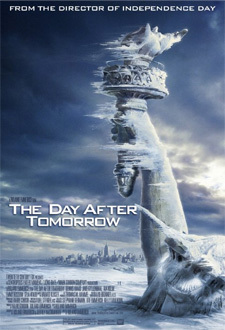
And, unfortunately, The Voyage Home is no exception. Why? Because its message comes out as less "save the whales" and more "let's allow genocidal aliens to tell us what to do." The Twinkie aliens are either outright evil (they're willing to punish an advanced, peaceful society for the crimes committed 300 years earlier, which is a bit like beating up your neighbor because his great-great-great-great grandmother stole an alpaca in 1835) or they are just remarkably dumb (who tries to communicate with whales by vaporizing the ocean?), or both. And yet Captain Kirk, the most undefeatable badass in the Alpha Quadrant, decides after about 2.5 seconds that fighting these little space-Hitlers is "futile," and that the only option is to give them what they want.

Hey, it's not like time travel ever caused any complications in our universe. Let's go!
So, either Kirk has suffered tragic delta-ray-radiation brain damage, or the movie wants us to accept that this is the right thing to do, and that the aliens slapping Earth around like an abusive boyfriend somehow have the moral high ground. In the end, the probe sails off without so much as a polite explanation, ready to go off and destroy Vulcan for killing off gerbils in 10,000 B.C. or whatever.
Rise of the Planet of the Apes: Scientific Hubris Is Bad (but Only if Everyone Involved Is Incredibly Stupid)

The Message:
In the near future, scientists are developing a virus that can erase brain aging and stop your grandma from forgetting her Facebook password forever. The virus escapes and turns out to be fatal to humans, while making other primates smarter, which leads to both a massive human die-off and a flourishing of macrobiotic banana recipes. Like a lot of science-fiction, the movie is about what happens when humans mess around too much with nature. Hell, it even has a background plot about an ill-fated Mars probe named "Icarus," a name that is shorthand for doomed scientific overambition, as well as being possibly the worst name for a Mars probe ever.

You might as well build a spaceship entirely out of black cats, broken mirrors, and the blood of angry Gypsies.
Why It Falls Flat:
Humanity doesn't die because scientists overstepped their boundaries and played God. They die because every scientist involved in the "brain virus" project apparently knows less about biology than a toddler who's been taught to wash his hands after he poops.
In one scene, an unsedated chimp is being gassed with the experimental virus. Unsurprisingly, because "experimental" and "unsedated chimp" go together about as well as "Thanksgiving dinner" and "nudity," things go wrong: The ape convulses, virus-gas gets everywhere, and one unlucky scientist's mask is briefly knocked askew. Everyone goes on like nothing happened, because apparently these scientists believe that airborne viruses follow the five-second rule. When the guy falls ill, the other scientists decide that it's just a coincidence, and go on with their work as the poor dude wanders around without so much as a Hello Kitty surgery mask. Eventually he sneezes blood on an airline pilot, who must think to himself, "Oh, just a blood-sneeze from a visibly dying man, nothing serious," because he then hops on a plane.

"Sir, the virus has gone- damn, what's the word I'm looking for? It has become popular
in the fast-spreading manner of a humorous cat picture."
The lesson here is not so much "don't fuck with Mother Nature" as "in the near future, every single person will suddenly decide that illnesses can be spread only by means of angry ghosts."
C. Coville's Twitter is here.
Always on the go but can't get enough of Cracked? We have an Android app and iOS reader for you to pick from so you never miss another article.